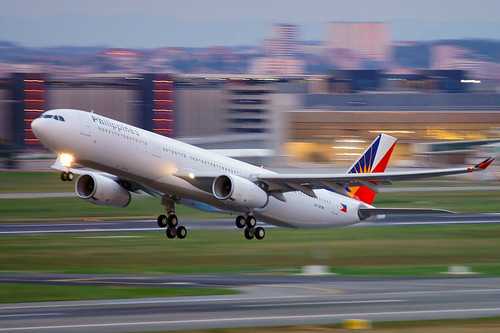 27 April 2018
27 April 2018 BY MAYVELIN U. CARABALLO
San Miguel Corp.’s unsolicited proposal to build an airport in Bulacan, along with several other major infrastructure projects, has been approved by the National Economic and Development (NEDA) Board chaired by President Rodrigo Duterte.
San Miguel, which was awarded original proponent status last year for the P735.63-billion project, is now expected to face a Swiss challenge for the right to build an alternative to Metro Manila’s Ninoy Aquino International Airport (NAIA).
“Confirmation is subject to final review of [the]concession agreement,” Finance Secretary Carlos Dominguez 3rd told reporters.
The plan calls for the construction, operation and maintenance of an international airport with an area of approximately 2,500 hectares in Bulakan, Bulacan. It involves the construction of a passenger terminal, along with an 8.4-kilometer toll road, able to accommodate 100 million passengers per year.
The NEDA said the airport project had been approved along with seven others but Dominguez said the Board had green-lit a total of 20.
In a statement, the NEDA identified the other projects as:
• the P50.03-billion Subic-Clark Railway project;
• P5.61-billion Clark International Airport Expansion Project and Operations and Maintenance PPP Concession;
• P39.2-billion Ambal-Simuay River and Rio Grande de Mindanao River Flood Control projects;
• P27.37-billion Pasig-Marikina River and Manggahan Floodway Bridges Construction Project;
• P11.37- billion Bridge Construction Acceleration Project for Socioeconomic Development;
• P4.78-billion Rural Agro-Enterprise Partnership for Inclusive Development and Growth (RAPID Growth) Project; and
• the P1.086-billion Davao Food Complex Project.
The Subic-Clark Railway Project involves the construction of a 71.13-kilometer line that will connect the Subic Bay and Clark freeports. Of the P50.03-billion cost, P42.53 billion will be financed through official development assistance (ODA) and P7.51 billion through local funds.
The Clark airport project, meanwhile, involves the selection of an operator that will undertake the fit-out and installation of the necessary systems to “complete, commission, operate and maintain” a new airport terminal that will be built by the Megawide-GMR consortium. The winning bidder will be given a 25- to 30-year concession.
The Ambal-Simuay and Rio Grande de Mindanao projects cover the construction of flood management infrastructure along the Mindanao River Basin, which is the second largest in the country.
Construction of the Pasig-Marikina River and Manggahan Floodway bridges — 10 in total — is expected to ease traffic congestion in Metro Manila. The first two spans — the Binondo-Intramuros and Estrella-Pantaleon bridges — received NEDA Board approval last year and will be built via a grant from the Chinese government.
The larger Bridge Construction and Acceleration project, which is expected to be completed by 2022, involves the turnkey construction of five four-lane bridges and 25 two-lane truss bridges, comprising a total length of 2,848 lineal meters, in nine regions nationwide.
The RAPID Growth project, meanwhile, aims to support 78,000 farming households by increasing on-farm and off-farm activities and generating employment opportunities in rural areas. It will be implemented in stages, with the pilot phase to cover up to 25 percent of the total project cost.
Lastly, the Davao Food Complex involves the development, marketing, management, and lease of a 20-hectare area owned by the government in Toril, Davao City. The planned agri-industrial complex is expected to promote development in the area.
The NEDA, without providing details, said the Board also accepted revisions to the following previously-approved projects:
• a change in scope and cost, as well as a loan validity extension, for the Integrated Disaster Risk Reduction and Climate Change Adaptation Measures in Low-Lying Areas of Pampanga Bay project;
• change in scope and cost for Phase 2 of the Integrated Marine Environment Monitoring System Project;
• a cost increase for the New Centennial Water Source—Kaliwa Dam project; and
• the restructuring of the Integrated Natural Resources and Environment Management project.
Dominguez, meanwhile, said the following projects were confirmed “ad referendum” or subject to agreement by others:
• a change in financing, from local funding to ODA, for the Arterial Bypass Project (ARBP) Phase III’s Contract Packages I, II, and IV;
• P25.26-billion Improving Growth Corridors in Mindanao Road Sector Project (Tawi-Tawi bridges);
• proposed change in design and increase in cost of the P4.37-billion Chico River Pump Irrigation Project;
• P1.27-billion Conflict-Sensitive Resource and Asset Management Program – Financial Cooperation;
• P20.3-billion Safe Philippines Project Phase 1;
• request for a supplemental loan for the New Bohol Airport Construction and Sustainable Environment Protection Project;
• a 24-month loan validity extension, revision of construction period and schedule, and change in scope of the P1.03-billion Samar Pacific Coastal Road Project; and
• a 46-month extension of the loan validity and project completion schedule for Stage II of the P11.21-billion Jalaur River Multi-Purpose Project.




